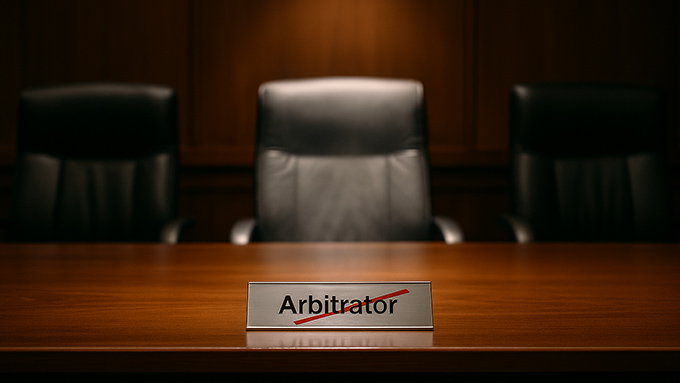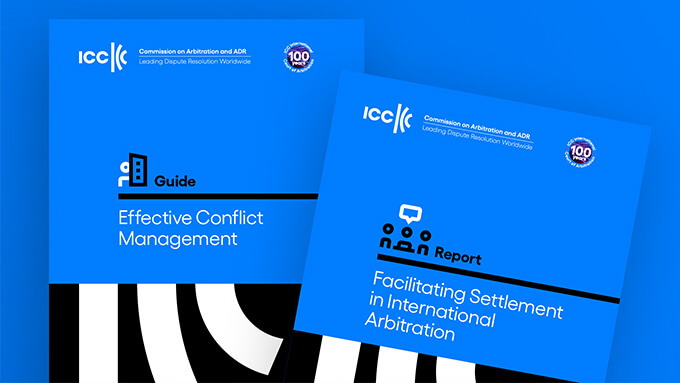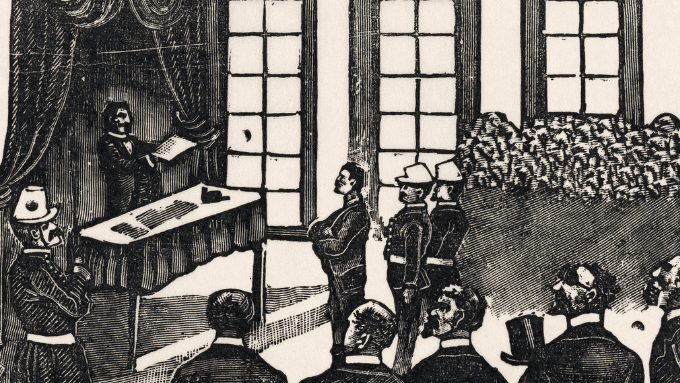Challenging Arbitrators and LCIA Challenge Decisions
Introduction
It is essential that all arbitrators are and remain, independent and impartial throughout the arbitration. Almost all institutional rules contain a provision requiring arbitrators to be impartial and independent. Examples include Article 14 of the ICC Rules where “lack of impartiality or independence” is a ground for challenging the arbitrators and Article 10 of the LCIA Rules and Article 12 of the UNCITRAL Arbitration Rules where “justifiable doubts as to the arbitrator"s impartiality or independence” is foreseen as a valid ground for challenge. Other grounds for challenge include arbitrators acting contrary to the arbitration agreement and the arbitrator’s qualifications.
However, there are no criteria set as to the standard required in order to uphold an application challenging the arbitrator’s independence and impartiality. The LCIA and UNCITRAL Rules make reference to “justifiable doubts” which is not defined. IBA Guidelines on Conflicts of Interest in International Arbitration serve as a guide, and is generally taken into account when an arbitrator is challenged. Nevertheless, neither arbitrators, nor the authority (i.e Secretariats of arbitral institutions) determining the result of the challenge are bound by the IBA Guidelines.
Under institutional arbitration proceedings, such challenges are submitted to the relevant Secretariat and once a decision is made, this is notified to the parties and the arbitrator(s). In cases conducted under the ICC Rules (the new rules which entered into force on 1 March 2017), parties may ask the ICC Court to provide reasons for its decision. However, these decisions are only available to the parties.
LCIA Publishes Challenge Decisions
Last month, the LCIA has made online digests of 32 challenge decisions covering the period from 2010 to 2017. The LCIA has stated that they will update the website and add new decisions. The aim of the publication is to shed light on the challenge procedure, and the reasons to uphold or reject challenges. This is in line with LCIA’s ongoing commitment to transparency in arbitration. Furthermore, it is hoped that such decisions are used as a significant tool for research.
The first page of the decisions LCIA has published includes a table which gives information about the subject of the challenge, the division or court member who has decided the challenge, and a summary of the decision. This is followed by background information of the case and excerpts from the original decision. All decisions are anonymized.
Over 1,600 cases were registered with the LCIA between the above-mentioned period. As stated by the LCIA and upon reviewing the decisions, it is clear that challenges are rare and succeed even rarer considering that less than 2% of these cases were challenged and a mere one-fifth of them were successful.
LCIA Challenge Procedure
According to Article 10.1 of the LCIA Rules, an arbitrator’s appointment may be revoked in three instances: (i) the arbitrator recuses him/herself, (ii) the arbitrator falls seriously ill, refuses, or becomes unable or unfit to act; or (iii) circumstances exist that give rise to justifiable doubts as to that arbitrator’s impartiality or independence.
The LCIA Court may determine that an arbitrator is unfit to act under Article 10.1 if that arbitrator: (i) acts in deliberate violation of the Arbitration Agreement; (ii) does not act fairly or impartially as between the parties; or (iii) does not conduct or participate in the arbitration with reasonable efficiency, diligence and industry (Article 10.2 of the LCIA Rules).
The LCIA Court may revoke an appointment upon its own initiative, or when either all other members of the Arbitral Tribunal, or one of the parties, make a written request to the Court.
The Rules provide for a 14-day time limit. This time limit starts following the formation of the Arbitral Tribunal, or when the requesting party becomes aware of any of the above-mentioned grounds. The challenged arbitrator and the other party are given an opportunity to comment on the challenge. Where the parties do not agree on the challenge, or the challenged arbitrator does not resign, the Court decides the challenge.
Main Grounds for Challenge
The main ground for challenge relates to the arbitrator’s independence and impartiality. In most cases, the requesting party makes reference to a procedural decision that was contrary to its interest. Such procedural decisions are used as evidence of bias. Another ground the parties have relied on is alleged conflict of interest.
Notes from Decisions Where the Challenge is Upheld
Not surprisingly, in one of its decisions, the LCIA Court has concluded that arbitration practitioners who act as both arbitrator and counsel should be aware of potential conflicts[1].
It is generally accepted that the mere fact that an arbitrator who has acted as counsel against one of the parties in a previous case does not give rise to a justifiable doubt as to that arbitrator’s independence or impartiality. This has been acknowledged by the LCIA Court. However, in the previous case where the arbitrator was acting as counsel against one of the parties, he/she had alleged that party’s fraud, albeit the issue remained undecided. The Court concluded that since there was such an allegation, there was a real possibility or danger that, the arbitrator would consciously or unconsciously be influenced by the evidence submitted in the present case when determining the issue involving that party[2].
Arbitration practitioners need to be careful when they publicly make comments regarding companies. In one of the cases, the arbitrator had publicly made negative comments about the parent company of one of the parties in such a way that justifiable doubts arose as to his/her impartiality. The test was an objective one where “a fair-minded and informed observer would conclude that there is a real possibility that the arbitrator is biased vis-à-vis that party.”[3] The requirement of objective factors was reiterated in another case[4].
The issue as to the role of tribunal secretaries is a delicate one which has caused few awards to be challenged. The LCIA has revised its Notes for Arbitrators and added notes regarding the tribunal’s mandate and the tasks tribunal secretaries may perform. In one of the decisions, tribunals were cautioned about the tribunal secretary’s involvement, particularly, their contribution to the decision-making process. In the same case, importance of confidentiality was reiterated, as breach of confidentiality could be a ground to revoke an arbitrator if it qualified as a breach of the arbitration agreement. However, it was stated that the breach should be deliberate for it to be a ground for removal of the arbitrator under the Rules[5].
Notes from Decisions Where the Challenge is Rejected
The arbitrator’s disclosure obligation is still an issue which is debated. There are different views as to the scope of the disclosure and the consequences of non-disclosure. In one case, one of the grounds for the challenge related to an arbitrator not disclosing the fact that he/she was a member to an organization to which one of the parties’ former lead counsel and a lawyer who acted against the same party, were members as well. The LCIA Court concluded there were no appropriate grounds for the arbitrator to have disclosed such circumstances, and that since there were no specific allegations of conflict, this would not qualify as a valid ground, and rejected the challenge.[6] In another case, an arbitrator who was a barrister rejected to disclose information regarding other barristers in his/her chambers. In that case, the Court concluded that arbitrators were not obliged to disclose the activities of other barristers in their chambers and non-disclosure would not be considered as a valid ground for challenge and rejected the challenge.
In one of the cases, a challenge was rejected by the Court where the arbitrator had represented one of the parties over 17 years ago, and had conducted proper investigation and disclosed such circumstances to both the parties and the LCIA Court. The Court concluded that such circumstances did not give rise to a justifiable doubt as to the arbitrator’s impartiality of independence[7].
Conclusion
In sum, these decisions illustrate how the LCIA decides on challenges. The well-reasoned decisions provide good examples for all participants, as well as some form of certainty as one may be better placed to analyze the merits of their own challenges.
[1] LCIA, No. 101689 and 101691, 22 June 2012.
[2] LCIA, No. 122053, 31 July 2012.
[3] LCIA, No. UN152998, 22 June 2015.
[4] LCIA, No. 142862, 2 June 2015.
[5] LCIA, No. 142683 (First challenge), 4 August 2016.
[6] LCIA, No. 153149, 12 April 2017.
[7] LCIA, No. 173566, 21 July 2017.
All rights of this article are reserved. This article may not be used, reproduced, copied, published, distributed, or otherwise disseminated without quotation or Erdem & Erdem Law Firm's written consent. Any content created without citing the resource or Erdem & Erdem Law Firm’s written consent is regularly tracked, and legal action will be taken in case of violation.
Other Contents

Emergency arbitration addresses the need for interim protection before the arbitral tribunal is constituted in institutional arbitrations. Arbitral institutions establish short timeframes to ensure parties can obtain interim relief quickly. For example, the International Chamber of Commerce (“ICC”) requires that the emergency...

International arbitration remains the preferred mechanism for resolving complex cross-border disputes. Yet despite its advantages—neutrality, enforceability, flexibility—arbitration is frequently criticized for being too slow, too expensive, and too procedurally heavy. Often, parties proceed through hearings and...

For arbitral awards rendered in international commercial arbitration to produce legal effects in foreign jurisdictions, they must be subjected to proceedings for “recognition” and “enforcement.” This process is governed by the New York Convention as well as by the provisions of the Law on Private International Law...

Arbitrability, the determination of whether a specific subject matter can be resolved through arbitration, constitutes a fundamental aspect of arbitration within the scope of international commercial dispute resolution. This concept draws a delicate balance between party autonomy—a fundamental principle of arbitration...

The recognition, enforcement, and annulment of foreign court and arbitral awards in Türkiye are processes in which public policy emerges as one of the most critical criteria for review, both in theory and in practice. The Court of Cassation decisions determine the direction of case law regarding the scope and...

As is well known, the action for annulment of objection is a special type of lawsuit regulated under Article 67 of the Turkish Execution and Bankruptcy Law No. 2004 (“EBL”). The primary objective of this action is to nullify a debtor’s objection to execution proceedings. Despite its procedural function of facilitating...

On 16 December 2024, the London Court of International Arbitration (“LCIA”) released its third batch of challenge decisions covering the period from 22 July 2017 to 31 December 2022. The LCIA has also issued a detailed commentary that identifies key legal themes and analytical trends, offering practitioners...

The International Chamber of Commerce (“ICC”) has published its report on the dispute resolution statistics for 2023 (“Report”) , shedding light on the evolving landscape of international arbitration...

Syndicated loans undoubtedly hold a significant position among global financing models. In 2023 alone, 3,655 syndicated loans were provided to companies in the US, with their total value reaching USD 2.4 trillion...

Preliminary attachment refers to the temporary seizure of a debtor's assets to secure a creditor's claim. While it serves as a vital instrument for safeguarding the rights of creditors, it is subject to specific and stringent conditions under Turkish law to prevent any potential misuse...

One of the most important reasons for parties to choose arbitration is the opportunity to freely choose their arbitrators. This freedom granted to the parties also distinguishes arbitration from proceedings before state courts, where the parties are deprived of the power to determine the judges who will conduct the...

The 6th Civil Chamber of the Court of Cassation ruled on October 12, 2022, that national courts have jurisdiction over objections to provisional measures in international arbitration disputes...

The declaration of intent to resolve disputes through arbitration is the fundamental constituent element of an arbitration agreement. To speak of a valid arbitration agreement, the parties' intention to arbitrate must emerge in a way that leaves no room for dispute...

In the wake of the evolving dynamics of commercial transactions, the Netherlands Arbitration Institute Foundation (NAI) announced new arbitration rules . 2024 NAI Arbitration Rules are in force as of 1 March 2024 and will be applicable on proceedings filed on or after this date...

With the global shift to online activities, domain names play a crucial role in identifying businesses. It is more common than ever for a domain name to be registered that is confusingly similar to a trademark or service mark...

The ICC Commission on Arbitration and ADR (“Commission”) published a new guide and report with the aim to increase awareness on alternative dispute resolution (“ADR”) mechanisms to prevent disputes and strengthen the relationship between all stakeholders.The Guide on Effective Conflict Management...

Mergers and Acquisitions (“M&A”) are restructuring of companies or assets through various types of financial transactions, such as mergers, acquisitions, purchase of assets, or management acquisitions. This Newsletter article covers M&A disputes being solved before arbitral tribunals.

In the context of arbitration practice, the principle of revision au fond means that the courts can not examine the merits of a dispute when reviewing an arbitral award. This principle is most commonly encountered in set aside and enforcement proceedings. An arbitral award is evidence of the parties’ willingness...

Under Turkish law, parties may agree on the settlement of disputes that have arisen or may arise, regarding the rights that they can freely dispose of, by arbitration. However, disputes which are not subject to the will of parties, such as the disputes relating to in rem rights of immovables, bankruptcy law...

On 4 September 2020, a research project “Does a Right to a Physical Hearing Exist in International Arbitration?” was launched by an International Council for Commercial Arbitration (“ICCA”) taskforce. Due to the Covid-19 pandemic, many arbitration hearings were held online. Many institutional rules...

Dubai International Arbitration Center amended its Arbitration Rules on 25 February 2022. The 2022 Arbitration Rules were published on 2 March 2022 and came into effect on 21 March 2022. The Rules will be applied to arbitrations that are filed after 21 March 2022; unless parties agree otherwise...

In the aftermath of the Achmea decision, controversies on intra-EU arbitrations continue. Most recently, the Paris Court of Appeal has annulled two arbitral awards rendered against Poland. Meanwhile, the Higher Regional Court of Berlin has refused to declare that an Irish investor’s ICSID claim...


Under Turkish law, the legal remedy that can be applied against arbitral awards is an annulment action. Law on International Arbitration No. 4686 (“IAL”) finds its application area in arbitration proceedings where Turkey is the place of arbitration...

It is well known that following a decision of the Court of Justice of the European Union, problems arose related to arbitration of intra-EU disputes, and particularly arbitration under the Energy Charter Treaty...

Arbitration in corporate law contains controversial elements in many respects, especially the issue of arbitrability. Even in legal systems where these disputes are considered to be arbitrable, uncertainties remain on whether an arbitration clause can be included in the articles of...





Arbitration has benifited from a great increase in the use of technology which has directly effected the conduct of proceedings. More particularly, with digitalization, the way that we conduct arbitration proceedings has been changed to reflect the current needs of parties, with an aim of increasing time...
































































